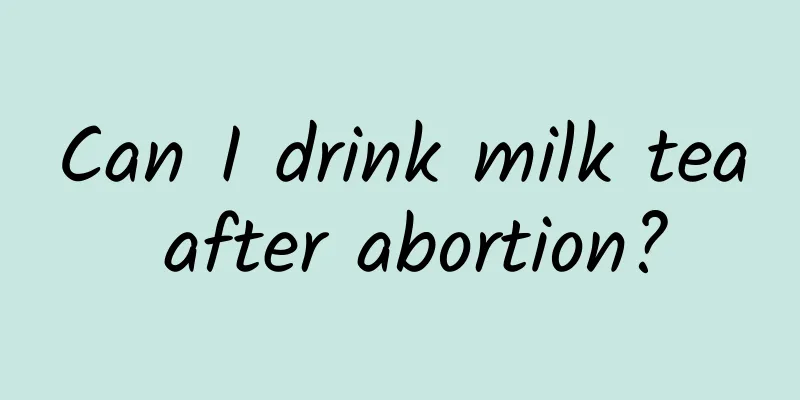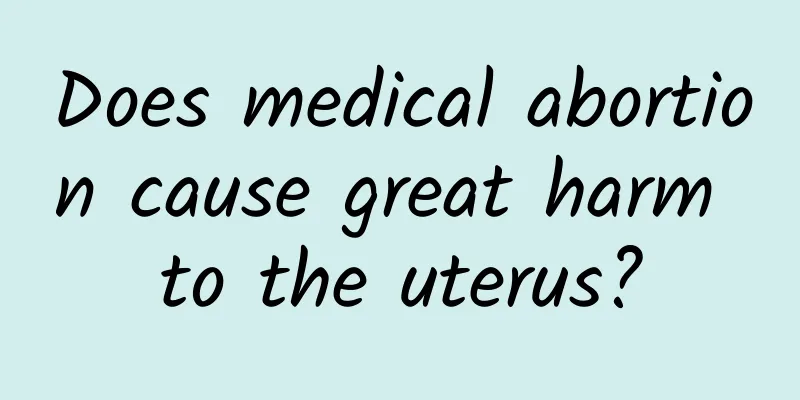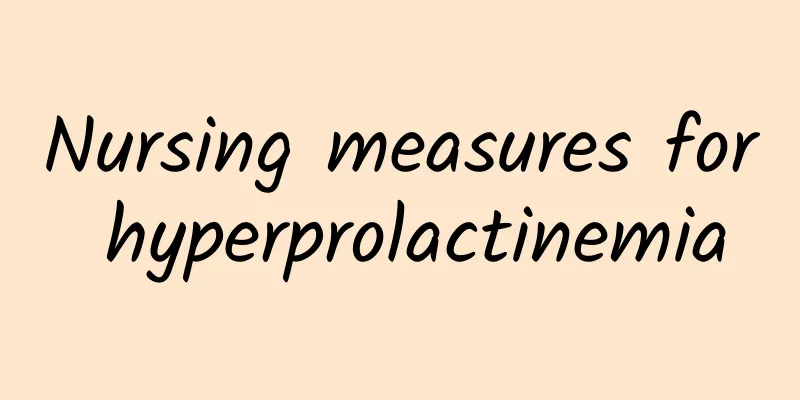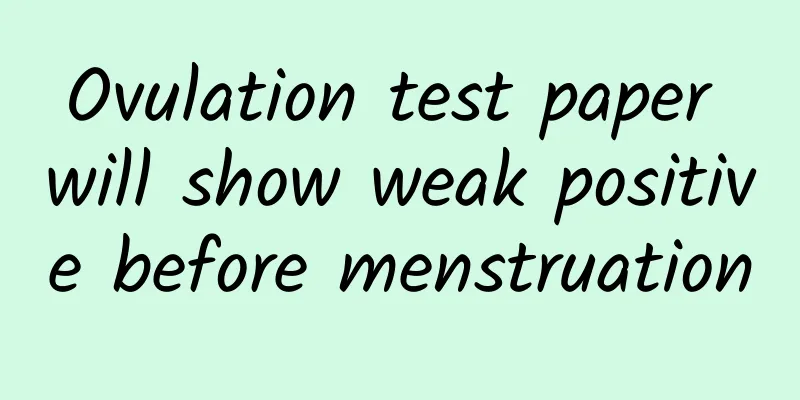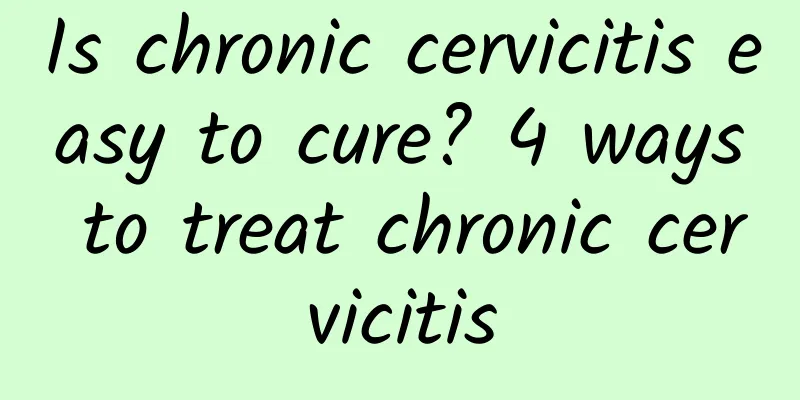What foods should not be eaten for spontaneous uterine fibroids? Foods that are prone to recurrence of uterine fibroids
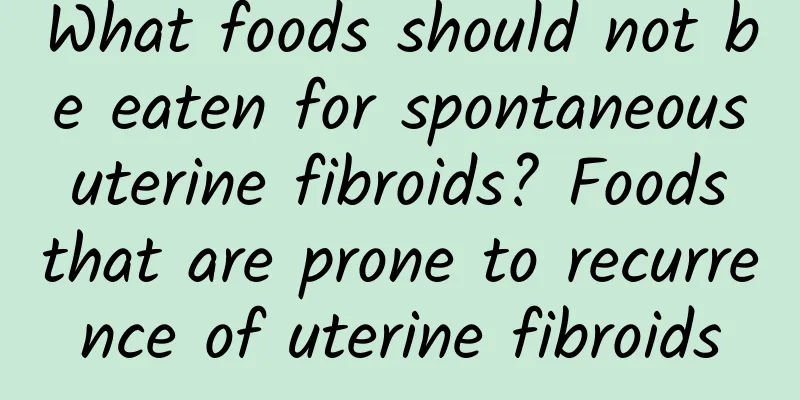
|
What can't you eat for spontaneous uterine fibroids? This is a question often asked by many women with uterine fibroids. Uterine fibroids are a common gynecological disease that has a great impact on women's quality of life and fertility. In order to better manage and prevent the recurrence of uterine fibroids, it is particularly important to understand the foods that should be avoided. For patients with spontaneous uterine fibroids, high-fat foods should be avoided as much as possible. A high-fat diet will increase the level of estrogen in the body, and estrogen is one of the main factors that cause the growth of uterine fibroids. Therefore, excessive fat intake will aggravate the symptoms of uterine fibroids and increase the risk of recurrence. Patients should avoid eating too much high-fat foods such as meat, butter, cheese, and especially fried foods such as fried chicken and French fries. Progesterone is another important factor in the growth of uterine fibroids. Therefore, patients with spontaneous uterine fibroids should avoid foods containing artificial progesterone. These foods include meat, milk and dairy products containing artificial hormones, such as chicken, pork, milk, cream, etc. Some artificial seasonings and canned foods may also contain progesterone, so patients should read food labels carefully and try to choose fresh organic foods. In addition, excessive caffeine intake can also stimulate the growth of uterine fibroids. Caffeine is a stimulant that can increase the metabolism and excretion of estrogen, thereby promoting the development of uterine fibroids. Therefore, patients with spontaneous uterine fibroids should limit their caffeine intake. Generally speaking, the daily caffeine intake should not exceed 300 mg. This is equivalent to about one cup of regular coffee or two cups of tea. It should be noted that each person's situation is unique, so the patient's dietary needs will also be different. It is recommended that patients with spontaneous uterine fibroids consult a professional doctor or nutritionist about diet to understand the dietary habits and restrictions that are suitable for them. In addition to avoiding certain foods, it is also necessary to pay attention to the intake of balanced nutrition and increase the intake of fruits, vegetables, grains and fiber, which can help improve the symptoms of uterine fibroids. What can't you eat if you have spontaneous uterine fibroids? Understanding these food restrictions can help patients better manage and prevent the recurrence of uterine fibroids. However, dietary management is not the whole of uterine fibroid treatment. For patients with severe symptoms, medication or surgery may be a better choice. If you have doubts or confusion, you should consult a gynecologist in time to get professional treatment advice. |
Recommend
Treatment of multiple uterine fibroids Are multiple uterine fibroids benign tumors?
Multiple uterine fibroids are a type of uterine f...
Is bacterial vaginosis treatment expensive?
The incidence of bacterial vaginosis is getting h...
Fight monkeys for food! Three creative ways to eat nutritious bananas
What is the best food to maintain health in the Y...
What are the dietary taboos for women with cervical erosion? Two drug treatments for cervical erosion
After understanding the method of treating cervic...
Magnesium deficiency can cause dysmenorrhea
Numerous studies have shown that dysmenorrhea is ...
What is the reason for missing menstruation? Four reasons need to be paid attention to
In life, when people face the situation of delaye...
Pros and cons of menopausal hormone therapy
There are many ways to treat menopause. According...
Why does menstrual disorder occur after abortion?
After artificial abortion, the ovaries can genera...
1 to 2 weeks after menstruation to lose weight and eat whole grains to eliminate stool
Having a slim figure is something women dream of ...
Briefly introduce some preventive measures for pelvic inflammatory disease
You should know that pelvic inflammatory disease ...
Inspection items and hazards of Bartholinitis
Nowadays, there are more and more methods to trea...
Is female cervical erosion easy to treat? Precautions for treating female cervical erosion
Is cervical erosion easy to treat? This question ...
What is the impact of threatened miscarriage on people?
It has become an indisputable fact that environme...
Approximate hospitalization costs for excision of cervical precancerous lesions
Cervical cancer, when people hear these words, th...
Bae Suzy practices penguin exercises to get rid of butterfly sleeves and lose weight
[Key Points]: Bae Suzy, who is known as the first...
